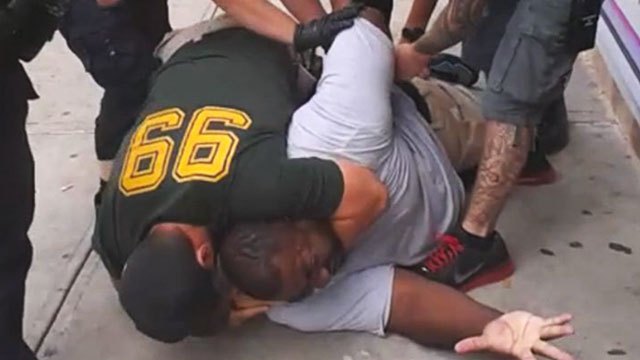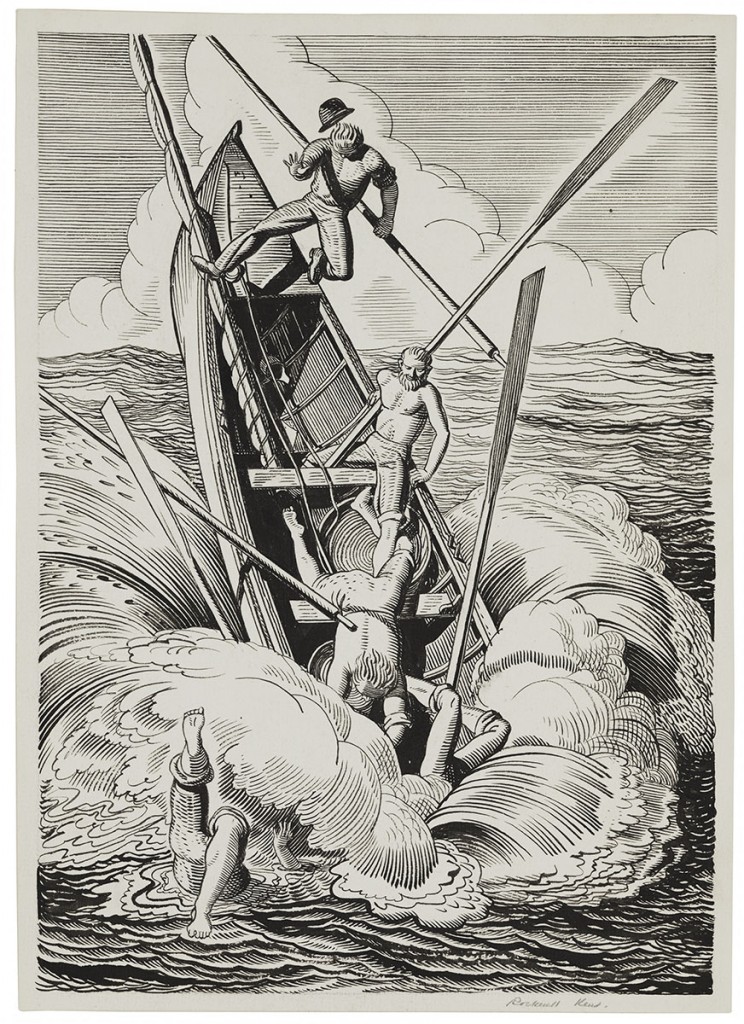The cops kill, and kill, and kill; and finally a couple of ’em get killed. There’s been much tear-shedding as a result, but my own eyes are bone dry, dry as the vertebrae of some ancient fossil reptile.
I know nothing of Wenjian Liu and Rafael Ramos, the collateral damage in this case, except that they were cops. This fact strongly prejudices me against them; but prejudice is merely prejudice, and it must be disregarded. It’s entirely possible, even likely, that Wenjian and Rafael were, as individuals, dear good people; mild and harmless to one and all. New York City chews up and spits out dozens or hundreds of such good people every day. We ought to mourn them all, but we don’t: and I don’t think we should make an exception for cops. In fact I think we should bend over backwards not to.
Our poor mayor, the hapless, gormless Bill de Blasio, doesn’t agree, and so he finds himself in the hopeless position of conciliating people — namely, the cops — who seek only to make an example of him. The cops are determined to show, once and for all, that it is they who rule New York. De Blasio was insufficiently obsequious to the pork during his campaign — though he really did try — and they will never forgive him.
Indeed, even if he had tried harder, it is the nature of institutions, like tumors, to grow if they can. Not to advance is to fall back. No matter how much the mayor grovels, the cops must always press for more, more, more.
Okay, you gave us Bratton. Fuck you very much. More!
I think de Blasio must really be as big a fool as he appears, unlikely as that may seem. I do believe he really thinks there’s a line he can walk here, a difference he can split, a meeting of the minds he can somehow effectuate, if he’s only nice and sensitive enough.
His latest grovel is a pathetic appeal to “demonstrators” to shut the fuck up and go home. He didn’t say it quite that way, of course; but that’s what it comes to. He didn’t tell the cops to go home, naturally, or even suggest that it might be a good idea to shoot and strangle members of the citizenry a bit less often. No, it’s the “demonstrators” who are the problem; they’re the people who ought to go home.
Even people who are less mutton-headed than de Blasio — people I know personally! — are still hag-ridden by the fetish of even-handedness, and feel committed to the imbecility of moral equivalence. Yes, it was bad to kill Eric Garner, but it was just as bad to kill the two cops. Twice as bad, in fact, since there were two of them.
Much is left aside in this view. The cops were killed by a poor loon operating without institutional backup. The poor loon had nobody to call on the radio if the gig didn’t go down as expected; and there was no way the DA would whitewash him, as that useful police adjutant did in the case of the cops who strangled Eric Garner. The loon was at least rational enough to grasp these facts, and rational enough to remove himself from the sublunary world before he could be made an example of. You might say that he appealed to a higher court and balked the lower.
I dunno about the morality, but there’s certainly no equivalence.
I’m trying to imagine the poor loon’s frame of mind after having failed (fortunately) to kill his girlfriend. Here again he seems to have been rational enough to realize that it was all over for him; the only thing left was to choose how to play his last scene. His choices were sharply limited.
The choice he made was by no means a random one. He could have gunned down some arbitrarily-chosen people, as despairing men so often do. Or he could have lain in wait for a mayor, or a senator, or a president, all of ’em popular targets.
But he didn’t. Instead, he chose cops; and not just any cops, but New York cops, the police-state gold standard. And he made a weary drive from Baltimore to Brooklyn in order to enact his final script.
(Like a real New Yorker, I wonder: Did he take the Verrazano? Only the MTA knows for sure.)
In every madness there is a method. Demented assassins seem to go for whoever appears to be in charge — the aforementioned presidents, governors, senators, mayors, etc. But our poor loon went for the cops.
Perhaps his reasoning powers weren’t entirely unimpaired, and there’s something we — and Bill de Blasio — can learn from him, to wit: that so far as daily life is concerned — the quotidian experience of the ordinary man and woman — it really is the cops who are in charge. All the doughfaced emperors on the coinage are mere figureheads, and it’s the Praetorian Guard who are really running the show.


